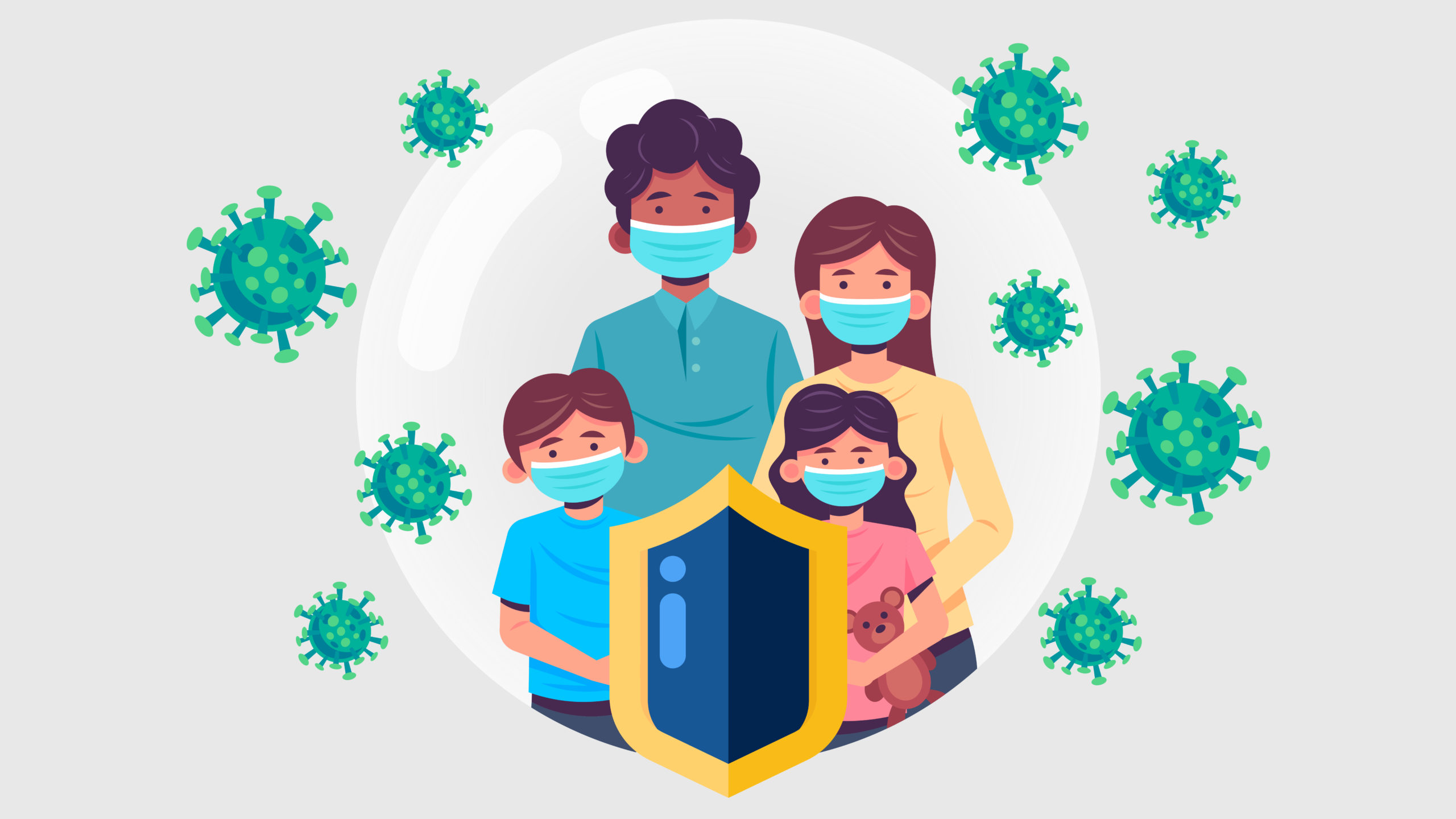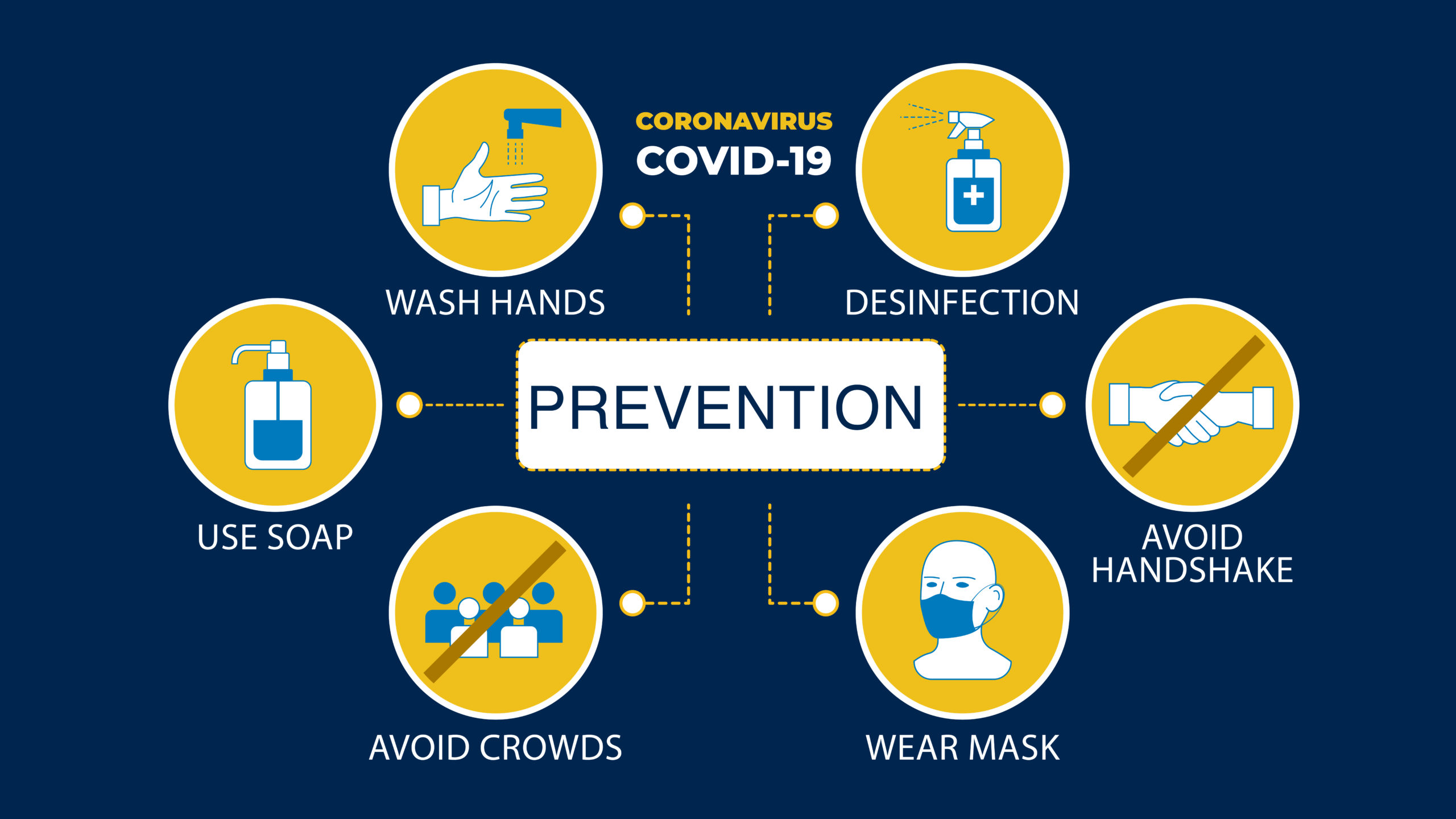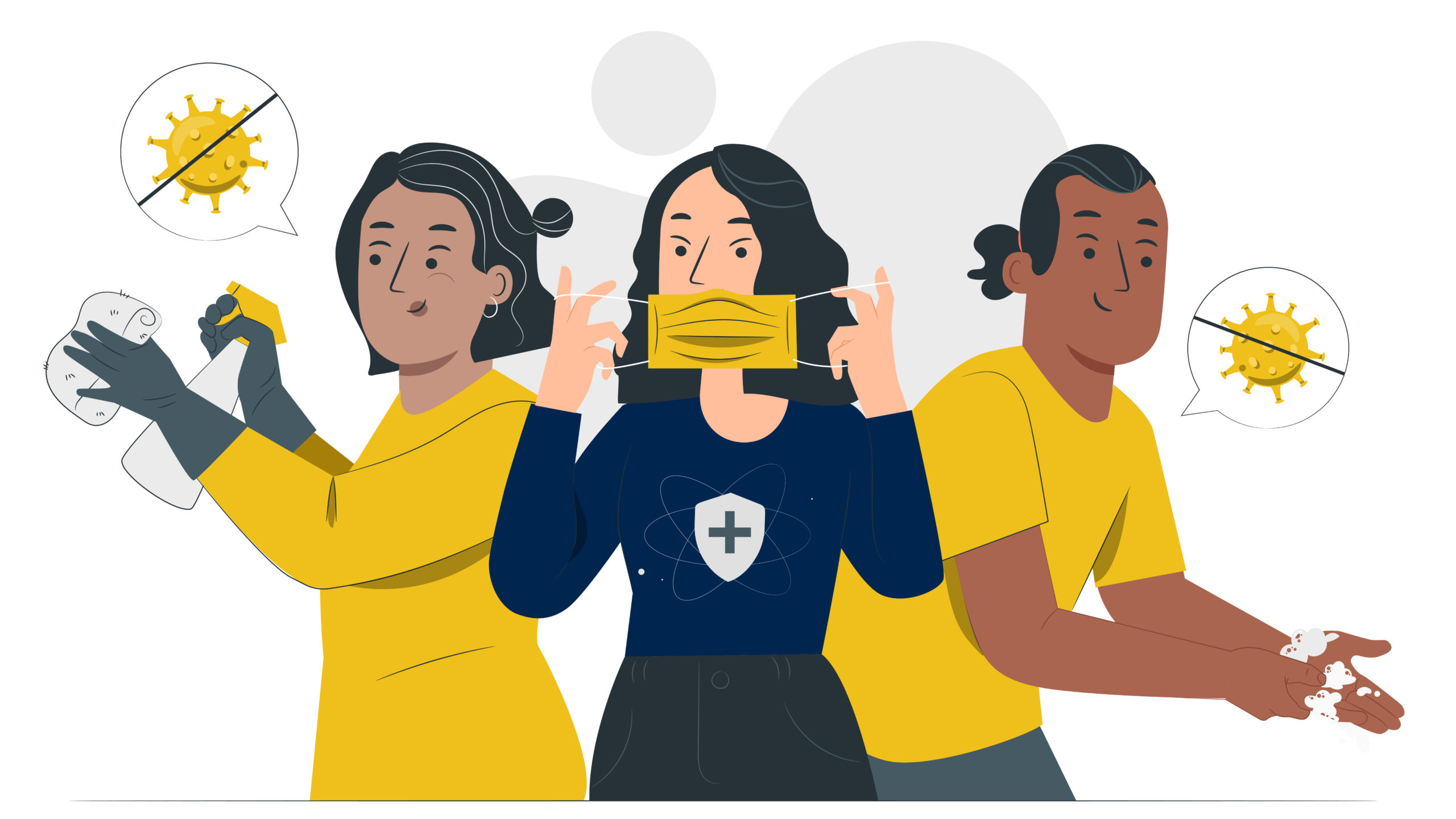
The COVID-19 epidemic has been running on for more than a year, and that alone is enough to drive most healthy people into a stress-induced spiral. Our health is merely one of many elements that impact our new normal, and stress may be just as tough to manage. Even if you and your family were not affected, your life has been flipped upside down.
Anyone can become unwell, whether they anticipate it or not. Even healthy medical practitioners who operate outside of the most dangerous medical environments are at risk. When someone tests positive, there is a lot of tension and anxiety. This is especially true for children, who are sometimes unnecessarily terrified when their siblings or parents test positive for COVID. During this period of national crises, we must handle two things simultaneously: 1) We must protect ourselves against the Coronavirus, and 2) we must protect ourselves from worry. If your anxiety, dread, and worry have become unbearable, set these ten methods into action.
Speak Softly and Calmly
When a child or a family member tests positive for COVID-19, they may be scared. Reassure your child that their instructors, classmates, and sports teams will all understand. Many more children and families will go through the same ordeal. Regardless of their age, share the test results with your child. It’s critical to name what they have, the anticipated duration accurately, and the strategy to help them, just as we inform youngsters, they have strep or the flu. Refrain from revealing your feelings (fear, frustration, sadness). Before speaking with your child, take a minute to think and take some deep breaths on your own if necessary.
Even if your child is asymptomatic, tell them they tested positive and explain to them about the approach to keep everyone healthy. Use terminology that is developmentally suitable for them to understand. “Your test came back positive, which suggests you have COVID-19 right now,” for example. You’re going to get better. Remember that most children are not very ill, and they recover quickly. For a few days, your throat may continue to ache and feel like you have a cold. We’ll keep an eye on your fever, make sure you drink enough water and advise you to get plenty of rest. You may also wear a mask around your children. We’ll keep you from going to school, having playdates, or participating in sports until your doctor and school agree it’s alright.”
Give them an Opportunity to Ask Questions
![]()
![]()
 After giving your child some accurate but restricted information, ask them what questions they have. Many youngsters have internalized COVID-19 worries, such as getting their parents or siblings sick, their asthmatic sibling dying, grandmother dying, or passing COVID-19 on to friends. Allow them to express their anxieties and clarify misunderstandings, especially in the milder omicron. It’s fine to admit that you don’t know the answer to a question and then go find out the answer by phoning the doctor or seeking information on a reputable website. Fears of losing out on social gatherings, extracurricular activities, or homework may also exist in children. Acknowledge your child’s anxieties, even if they seem little or trivial to adults. Work together to develop a strategy for dealing with their concerns. “I hear you’re concerned about losing out on what the other kids are learning at school,” for example. Let’s consider what could be of assistance – do you have any ideas? I may send an email to your instructor and ask if there is any work you can finish at home?”
After giving your child some accurate but restricted information, ask them what questions they have. Many youngsters have internalized COVID-19 worries, such as getting their parents or siblings sick, their asthmatic sibling dying, grandmother dying, or passing COVID-19 on to friends. Allow them to express their anxieties and clarify misunderstandings, especially in the milder omicron. It’s fine to admit that you don’t know the answer to a question and then go find out the answer by phoning the doctor or seeking information on a reputable website. Fears of losing out on social gatherings, extracurricular activities, or homework may also exist in children. Acknowledge your child’s anxieties, even if they seem little or trivial to adults. Work together to develop a strategy for dealing with their concerns. “I hear you’re concerned about losing out on what the other kids are learning at school,” for example. Let’s consider what could be of assistance – do you have any ideas? I may send an email to your instructor and ask if there is any work you can finish at home?”
Reassure them that all will be good
Assure your kid that they are not at fault. Assure them that they do not need to feel guilty and that they are not at blame. It is a virus that circulates quickly and is difficult to detect. Despite their best efforts, the infection continues to spread. They are not to blame. Extra love, hugs, and reassurance should be given.
Explain the next steps
Create a consistent daily schedule for their COVID-19 quarantine period. Consider making a timetable for their days (a visual schedule with illustrations for children who cannot read). Despite their best efforts, the infection continues to spread. They are not to blame. Children feel safer when they know what to anticipate and have clear limits. Include some special indulgences to lift their spirits but avoid eliminating the boundaries that keep them healthy. For example, parents may let their children watch more television, but only within appropriate boundaries (e.g., an extra 30 minutes, not an extra 3 hours). Similarly, you can provide special goodies to help them hydrate (juice or popsicles), but avoid giving them too much candy or treats. The removal of typical boundaries might make youngsters feel anxious or uneasy.
Plan Fun Activities during quarantine
When your kid has a COVID-19 infection, they may feel out of control. Allow children to make decisions for themselves, such as which book to read or what food they want to consume—making even small decisions can help your kid cope with illness and restore their sense of control and confidence.
Be available to talk more
As you learn more, ensure the children that you will keep them updated. “Let them know the lines of contact will be open,” Young children will feel more secure knowing that hospitals and doctors are ready to help ill individuals. Discuss the vaccines given out to protect people from the virus. Kids over the years of two who have not yet received a vaccination can wear a mask to help prevent the information of COVID-19. These discussions also assist children in coping with changes in their lives.
Limit exposure to sensationalist news stories
If they asked, explain that major sickness and death from the virus in children are still exceptional despite what they may hear. You should watch the news with your children so that you can filter what they hear. It’s easy to be drawn into social media feeds and breaking news stories about current events. Not only may this be stressful, but it can also be a source of misinformation. Instead, attempt to get COVID-19 updates from a reputable health source.
Take care of our own mental and Physical Health
You’ll be able to support your children more effectively if you’re also coping. Children will pick up on your reaction to the news, so they need to know you’re calm and in charge. If you’re feeling nervous or disturbed, take some time for yourself and call out to other family members, friends, and trustworthy members of your community for support. Make time to do things that will help you rest and recover.
ABC – Always Be Connecting
If you’re dealing with your mental health, there are many things you can do, and additional aid and support are available. Remember that it’s usual to have short-lived physical symptoms when you’re feeling down or nervous. Some of them, such as feeling overheated or short of breath, maybe mistaken with COVID-19 symptoms. If this happens, attempt to divert your attention elsewhere. Check to see whether you still have the symptoms that frightened you after you’ve calmed down. If you’re still worried, go to the CDC website.
Author
Dr. Stuart Silverstein, MD, FAAP.
Laughing Your Way to Passing the Pediatric Boards – 2022 Edition



 +
+